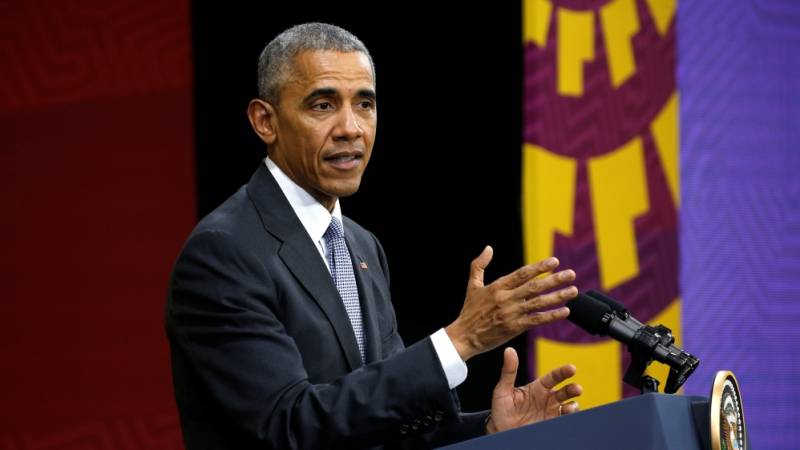Washington (Reuters): President Barack Obama expelled 35 Russian diplomats over suspect of spying and imposed sanctions on two Russian intelligence agencies over their interference in the US presidential election.
The measures, taken during the last days of Obama's presidency, mark a new post-Cold War low in U.S.-Russian ties and set up a potential flashpoint between incoming President-elect Donald Trump and fellow Republicans in Congress over how to deal with Moscow.
Obama, a Democrat, had promised consequences after U.S. intelligence officials blamed Russia for hacks intended to influence the 2016 election. Officials pointed the finger directly at Russian President Vladimir Putin for personally directing the efforts and primarily targeting Democrats, who put pressure on Obama to respond.
The US president said in a statement from Hawaii, "These actions follow repeated private and public warnings that we have issued to the Russian government, and are a necessary and appropriate response to efforts to harm U.S. interests in violation of established international norms of behavior."
"All Americans should be alarmed by Russia’s actions," he further added.
The statement said that the sanctions target nine entities and individuals, including two Russian intelligence services and three companies that provided material support to one of the intelligence services.
In addition the State Department is declaring 'persona non grata' 35 Russian intelligence operatives, meaning they must leave the country within 72 hours.
It is additionally shutting down two Russian compounds in the United States it says have been used by Russian personnel for intelligence-related purposes.
It was not clear whether Trump, who has repeatedly praised Putin and nominated people seen as friendly toward Moscow to senior administration posts, would seek to roll back the measures once he takes office on Jan. 20.
Trump has brushed aside allegations from the CIA and other intelligence agencies that Russia was behind the cyber attacks. He said on Thursday he would meet with intelligence officials soon.
“It's time for our country to move on to bigger and better things," Trump said in a statement.
"Nevertheless, in the interest of our country and its great people, I will meet with leaders of the intelligence community next week in order to be updated on the facts of this situation," he said, without mentioning Russia.
The Kremlin, which denounced the sanctions as unlawful and promised "adequate" retaliation, questioned whether Trump approved of the new sanctions. Moscow denies the hacking allegations.
U.S. intelligence agencies say Russia was behind hacks into Democratic Party organizations and operatives ahead of the Nov. 8 presidential election. U.S. intelligence officials say the Russian cyber attacks were aimed at helping Trump defeat Democrat Hillary Clinton.
Republican and Democratic lawmakers have voiced concern about Russia's actions; setting up a potential wall of opposition should Trump seek to overturn Obama's measures.
The U.S. official declined to name the Russian diplomats who would be affected, although it is understood that Russia's ambassador to the United States, Sergei Kislyak, will not be one of those expelled.
The State Department has long complained that Russian security agents and traffic police have harassed U.S. diplomats in Moscow, and U.S. Secretary of State John Kerry has raised the issue with Putin and his foreign minister, Sergei Lavrov.


